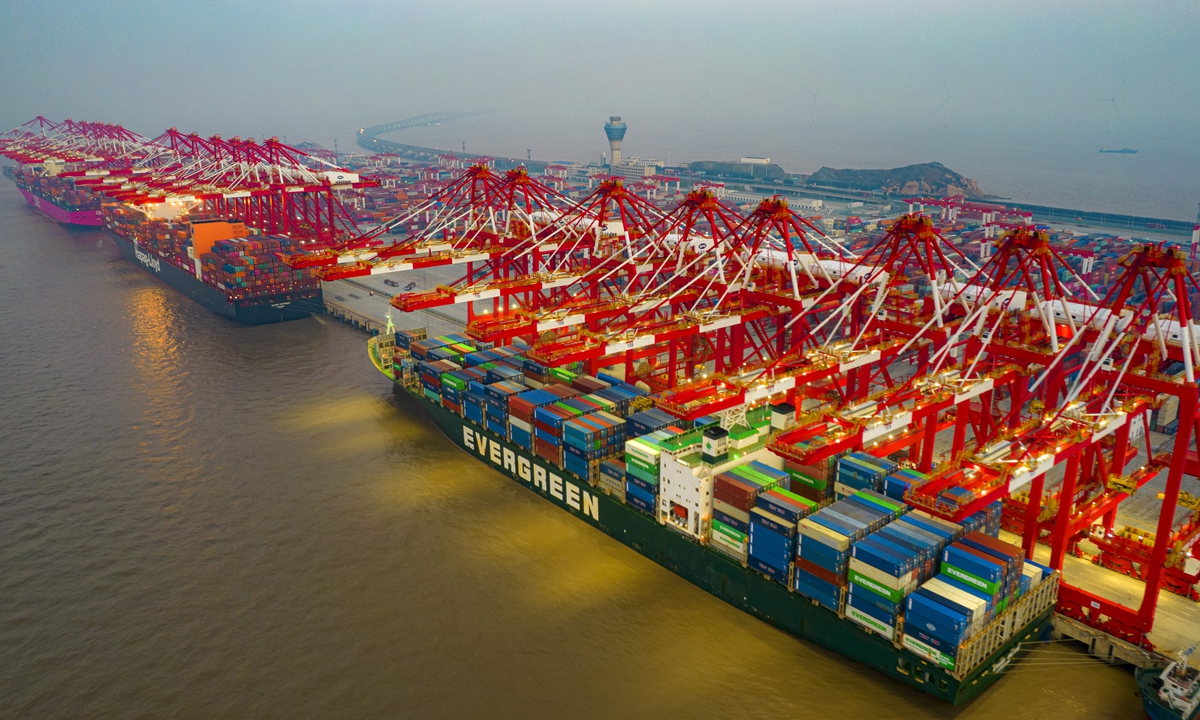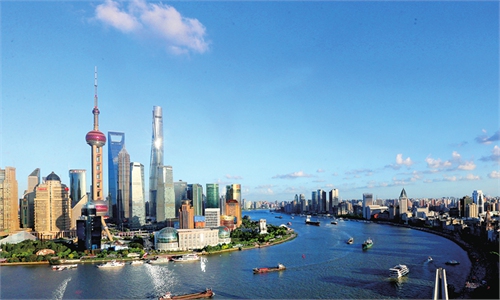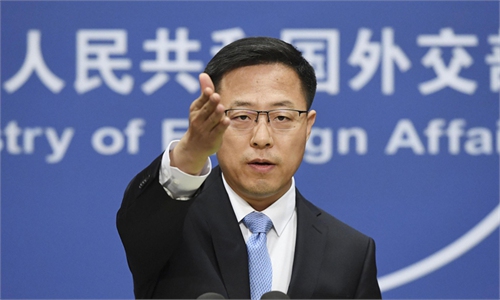
Container vessels berth at the Port of Yangshan to clear cargo around the clock in Shanghai on January 2, 2022. In 2021, the Port of Shanghai handled over 47 million standard containers, ranking first among the world's ports for the 12th consecutive year. Photo: VCG
As China is fiercely combating its worst COVID-19 outbreak since 2020, some Western media outlets seem especially keen on playing up the disruptions China's dynamic zero-COVID policy will bring to global supply chains, even though the global pandemic and geopolitical tensions are the real source of uncertainty for the world economy.On Tuesday, Bloomberg suggested that China's strict anti-epidemic measures "are about to unleash another wave of summer chaos on supply chains between Asia, the US and Europe." A report published on Monday by The Diplomat was even more specific about upcoming supply chain problems, claiming that China's dynamic zero-COVID policy will cause renewed congestion at US West Coast ports.
Without fail, these articles insist that companies are looking to move their supply chains out of China, a cliché narrative that only reflects their persistent refusal to objectively assess the Chinese economy and its irreplaceable role in the global supply chain.
In recent years, politicians in Washington have been clamoring to decouple from China, only to see increasing reliance on Chinese imports. More recently, China's objective and fair position over the Russia-Ukraine conflict and its strict dynamic zero-COVID policy seem to become the latest excuses for their fear-mongering about China. Such an attempt to scare foreign businesses to abandon the Chinese market is based purely on ideological bias and geopolitical calculations.
In fact, what has transpired over the past two years is that the COVID-19 pandemic has only made the world even more aware of the reliance on the Chinese economy. In other words, it is not so easy for foreign companies to decouple from China. Despite short-term disruptions caused by recent COVID-19 flare-ups, China's supply chain dominance will remain intact for the foreseeable future.
Since the outbreak of the COVID-19 pandemic, it is the inept and inadequate prevention and control measures in the West that has caused all kinds of supply chain problems, such as the shipping constraints, surging maritime transport costs, shortages of raw materials and high inflation. By comparison, China has maintained overall stable economic operations and demonstrated the resilience of its supply chains.
China's economic resilience is rooted in the strength of its manufacturing sector. There is no single country or region that has such a comprehensive and large-scale manufacturing chain as China does, and thus a massive industrial transfer is almost impossible. Neither the US' decoupling push or recent domestic COVID-19 outbreaks is likely to undermine China's manufacturing base.
Some US politicians have used China's anti-epidemic strategy to inflame trade decoupling among multinationals, but profit-seeking investors won't buy such political clamor. In fact, US investment in China has been on the rise over the years.
China has and will continue to open up its economy to foreign businesses and products and pursue win-win cooperation with other countries. There is no denying that recent outbreaks have caused some economic headwinds in the short term, but China has also rolled out numerous measures to tackle obstacles in logistics and supply chains for companies and minimize economic disruptions. Even in Shanghai, the port of Shanghai has still been operating with measures such as establishing a closed-loop bubble.
It can be expected that once the epidemic is brought under effective control, efforts on work resumption will easily offset some short-term impacts. When China emerges from this latest challenge, more foreign businesses, not less, will still see the country as the most important market.



